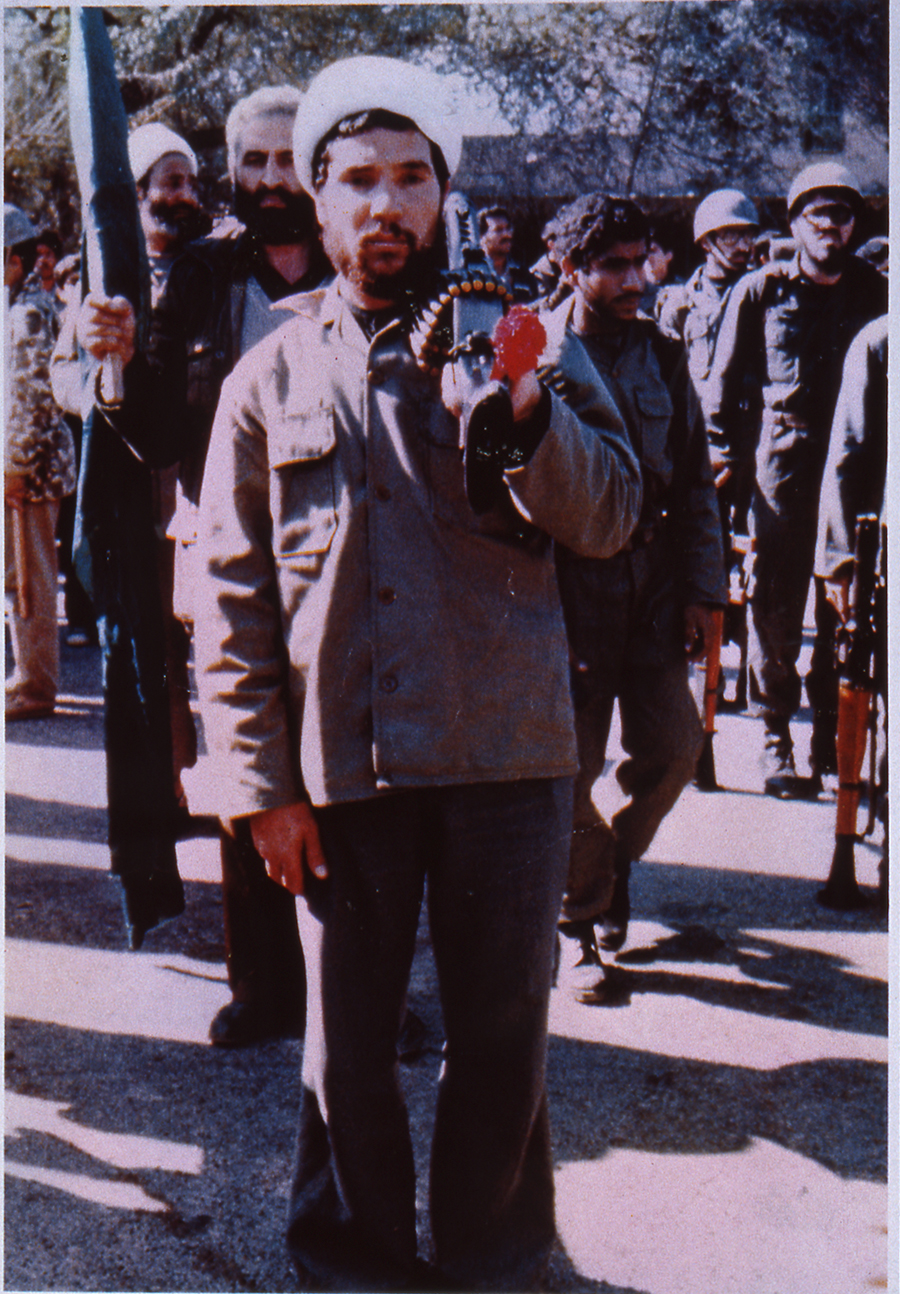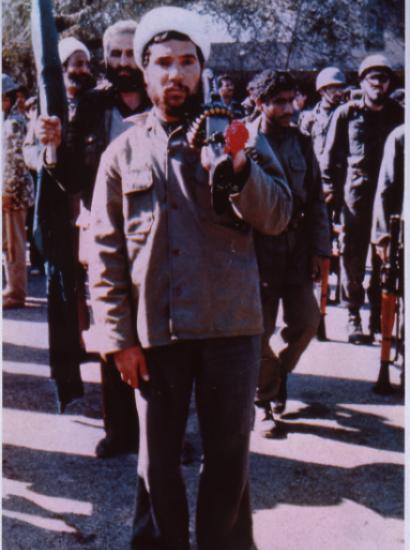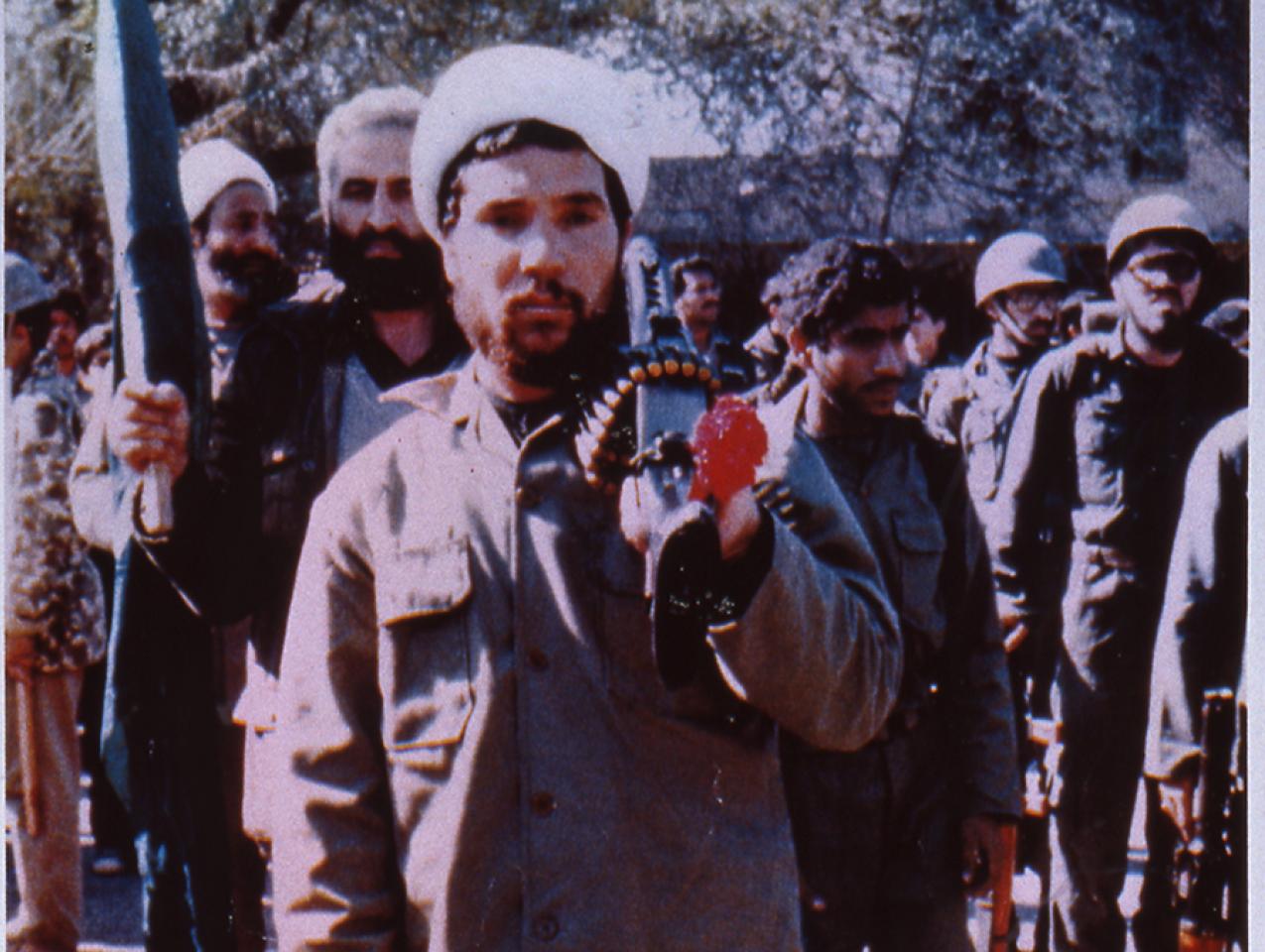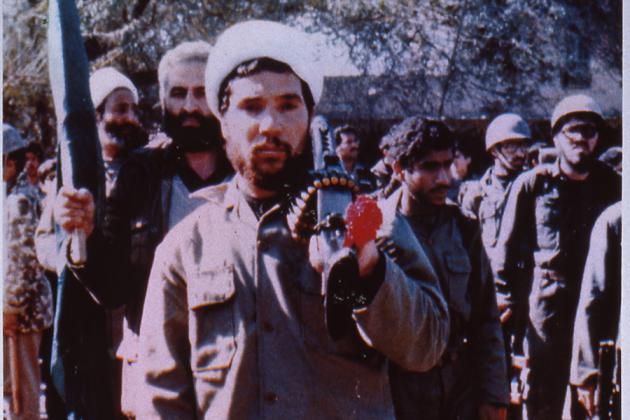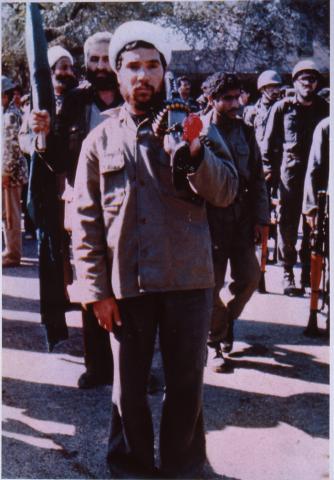The evident failure of the United States to deter Iran is manifest in the concurrent aggressions of its three Twelver Shia militias in Lebanon (Hezllah), Syria, and Iraq, which have wounded many American troops and killed three; the aggression of the Fiver Shia Houthi militia of Yemen that has attacked U.S. as well as other ships in the Red Sea with Iran’s missiles and drones, seriously damaging the Egyptian and world economy; the Iran-funded aggressions in Gaza of the Shia Islamic Jihad and, on a much larger scale, the violence of Sunni Hamas—all would be inexplicable given Iran’s extreme economic fragility and the severe limitations of its armed forces, were it not for the persisting effect of Obama’s one contribution to American foreign policy: his Iran negotiations, whose protagonists remain on center stage in Washington.
After sundry U.S. bombings that utterly failed to stop militia attacks against U.S. troops and Red Sea shipping, on February 2, 2024, a pair of B-1 heavy bombers sent out from Dyess Air Force Base in Texas, flew some 7,057 miles to launch 125 missiles at 85 militia targets in Iraq and Syria. Next, on February 3, the U.S. Navy with both missiles and jets and Royal Air Force jets out of Cyprus attacked 36 Houthi targets in Yemen.
It was an impressive reminder that the United States can bomb any target anywhere from home bases, and that the British are still capable of war (there is also a “European Union” flotilla in the Red Sea whose inactivity is also impressive in its own way).
But none of these attacks are at all likely to persuade Iran to stop further supplies of missiles and drones to its militias, if only because multiple U.S. officials immediately and most emphatically have denied any intention of bombing any targets within Iran…without adding the necessary proviso as to Iran’s behavior. Moreover, the ample public warnings given before the February 2–3 air strike undoubtedly ensured that Iran’s own Revolutionary Guards were nowhere near the sites that were attacked, nor missiles for that matter.
Israel has repeatedly and very deliberately targeted Iran’s Revolutionary Guard officers, very recently killing four senior colonels and junior generals, but not the United States—except for Trump’s decision to kill Qasem Soleimani on January 3, 2020, which was duly criticized for violating Obama’s unwritten law that Iran may attack any and all, but none may attack Iran or its treasured leaders. It all started at the very beginning of the Obama administration.
When Obama entered the White House he had promises to keep like all his predecessors, but he also had a promise he was really determined to keep the one he had made only to himself: to achieve a true reconciliation with Iran, not only to remove a constant irritant and intermittent danger, but also to reduce, or even remove the strategic necessity of backing two regional allies he personally detested, Israel and Saudi Arabia.
Obama also had plan of action: he would first win over the Ayatollahs by apologizing for America’s nefarious past in Iran—not the past documented in historiography, but the one depicted by the global Left, whereby it was a handful of U.S. and British agents who overthrew the inept, prostrate, and tearful Prime Minister Mosaddegh in August 1953, and not the mass uprising recorded in films and photographs. Having proved his sincerity, Obama would offer the Islamic Republic the alluring prospect of U.S. strategic disengagement from Israel and Saudi Arabia in exchange for the resumption of diplomatic relations—with an implicit promise not to imprison U.S. diplomats again, one presumes. To make concessions merely to have diplomatic relations, is a thing done only by pariah states. But for Obama, it was a really very clever scheme, because what he would offer to Iran’s rulers was no more than what he wanted for himself.
But Obama could not simply task the Government to carry out his plan, not only because both Israel and Saudi Arabia have a Washington presence that could quickly mobilize opposition in Congress and beyond, but also because very few if any officials across the executive branch shared his opinion of all three countries, and his implicit assumption that Iran’s rulers would want his longed-for reconciliation. That was certainly the case with his national security advisor and head of the National Security Council, ret. General James L. Jones, who viewed Iran with perfectly justified suspicion, while considering the security of Saudi Arabia an important U.S. interest, and Israel as an all-weather ally with some unusual operational capabilities.
But for this too Obama had a remedy: his very own Iran team, starting with his old Harvard friend Robert Malley who was brought in very early as an advisor to his first presidential campaign, and Valerie Jarrett. Malley had no Iran expertise and he had yet to acquire his later Iran affiliations, but he was the right man nonetheless because he was an absolute second-generation anti-Zionist (I first heard of his parents in Paris where they both worked for the Algerian FLN, then striving to exceed all other Arabs in their hatred for Jews and Israel). And he detested the Saudi monarchy. Valerie Jarrett, a considerable Chicago pol who had helped to ease Obama’s meteoric rise, had no such antipathies but happened to have been born in Iran to American parents, and spoke Farsi as a child. Jarrett was given a large staff in the White House albeit to work on domestic affairs, but her sentimental regard for Iran was useful for Obama’s propitiatory messaging to Tehran, and Jarret would also be useful in assuaging the concerns of her Chicago Jewish friends who had been Obama’s earliest backers.
That Malley was caught out very early in Obama’s first campaign, when The Times of London revealed on May 9, 2008, that he had been talking with Hamas––not so infamous as it now is, but already a listed terrorist organization whose charter called for the killing and not just the expulsion of Israel’s Jewish population. The campaign was forced to eject him but Obama’s reliance on Malley was undiminished. He was first eased into the White House as a consultant, then elevated as a Special Assistant, finally becoming the chief U.S. negotiator with Iran. Obama finally had an official who would relentlessly advance both sides of his plan, the reconciliation and the distancing. Even after leaving office, Obama imposed Malley on Biden, who was duly appointed “Special Envoy to Iran” very early in his Administration on January 28, 2021, retaining that position until late April 2023 when his security clearance was revoked. That the news first came from Tehran is revealing in itself: Malley’s Iranian associates in Washington included sympathizers with the Islamic Republic, hardly the usual stance of Iranian exiles.
The agreement that Malley oversaw in his earlier apparition as Obama’s Iran official, the Joint Plan of Action, a.k.a. the Geneva interim agreement of November 24, 2013. That agreement which would lead to the multilateral Joint Comprehensive Plan of Action of July 14, 2015, which was ostensibly negotiated by Secretary of State John Kerry and Under Secretary Wendy Sherman in Geneva. Sherman photogenically posed for the photographs while Kerry for his part made it clear that he would not leave Geneva without an agreement, acting very much like the tourists most beloved by all bazaar merchants, the ones who choose the carpet they really, really, really want…before bargaining to set the price.
But the shortcomings of Obama’s two official negotiators were of little real consequence, because the actual negotiations, backstopped by Malley in the White House, were conducted out of sight in Oman by then Deputy Secretary of State William J. Burns and Vice President Biden’s national security advisor Jake Sullivan. It was Burns and Sullivan who actually secured the agreement by making seemingly procedural concessions that were not disclosed until they were deliberately leaked by the Iranian cleric (Seyed) Abbas Araghchi, to humiliate the Americans. One was that the “heavy water” of the Arak reactor, which was critical for the plutonium path to the bomb, would not be stored in a remote location in Kazakhstan or Russia as had been publicly mooted, but in Oman, just across the water from Iran, and not guarded by neutrals but rather by Iran’s own Revolutionary Guards, ensuring that it could be returned to Arak in a matter of hours rather than days. They also agreed that no private U.S. economic claims against the Islamic Republic would be deducted from the repayments to Iran for the Shah’s last military purchase that was never delivered.
Because Burns and Sullivan were closely monitored by Obama’s likeminded pal Malley to ensure smooth progress towards the real aim of reconciliation, their Iranian counterparts must have formed the impression that they were emollient chaps, who would make concessions if pressed hard, instead of pushing back just as hard. Nor was the deterrence of Iran enhanced by the continuous messaging that sought to justify and exculpate the regime, most recently just before the February 2 air strike when an “American official” cautioned that analysts were still gathering and evaluating the information available to determine whether Iran had ordered the “more aggressive attack in Jordan that had wounded many Americans and killed three or a militia group decided to do so on its own.”
Because Iran’s leaders saw in front of them that the United States was led by people they knew very well and emphatically did not fear, and were advised until last August by a man who maintained amicable relations with their own Washington friends, they could not be easily deterred. Indeed, they went on a rampage with their four Shia militias and Hamas too. Hence for the Biden Administration in particular, the only way to deter Iran was to attack it directly as soon as its Revolutionary Guards first attacked Americans with their militias. A target in Iran that would harm no civilians, but to the contrary encourage the silenced majority—which detests the regime and loathes the Revolutionary Guards for diverting oil revenues to fund their adventures—would be the Guards’ own Thar-Allah Headquarters in Tehran. That might not be the right target for any number of reasons, but the principle involved is that if deterrence fails, it can only be restored—if at all—by deliberately disproportionate retaliation, not by expensively sending precision weapons half way around the world to attack empty buildings.







